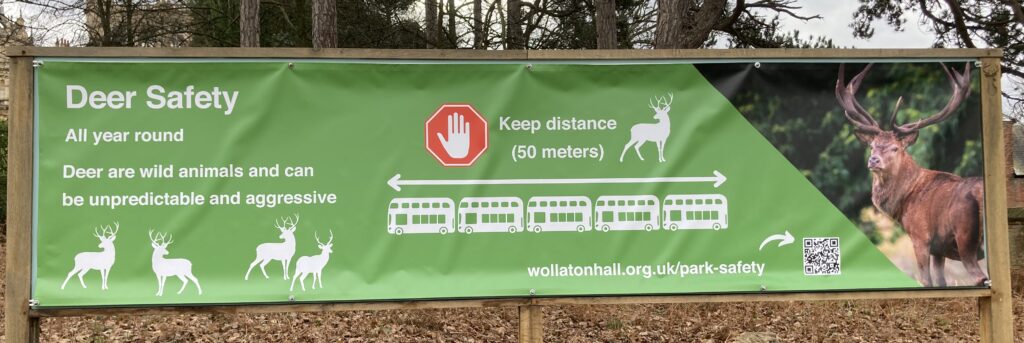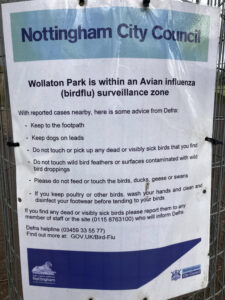These questions/answers have been developed by the Volunteer Park Rangers in association with Friends of Wollaton Park.
Friends of Wollaton Park
We are a volunteer community of like-minded individuals, and we aim to make Wollaton Park a better place for all. We work alongside park staff and other volunteer groups and enjoy the support of local councillors and the park management.
We are not employees of Nottingham City Council. Our members are local people who give up their spare time to help conserve and enhance the park.
The Council’s Park Management team is responsible for the formal operation, security, and statutory maintenance of the Hall and grounds. FoWP supports them through specific volunteer-led projects, gardening, and community activities.
For detailed questions regarding park policy, historical records, or council decisions, please contact the Wollaton Hall & Park Office directly. As volunteers, we are unable to provide detailed research or formal responses on behalf of the City Council.
Our social media is managed by volunteers around their jobs and families. We cannot provide a 24/7 information service or engage in long technical discussions online. We prefer to chat in person at our scheduled sessions!
It’s great to hear you have some suggestions, your input helps us prioritise what we tackle next. Here are the four best ways to share your suggestions:
• Paid FoWP members are invited to our four open meetings per year. These are attended by park management and are the best place for direct dialogue.
• Post your idea right here on this Facebook group! It’s a great way to gauge support and get feedback from the group before taking a proposal further.
• You can submit suggestions formally via our “Contact Us”
• For operational issues (like bins, wildlife concerns or park repairs), you can reach out to the park management team via the email on their website.
Because we are all volunteers giving our spare time, we often have to focus on small-scale wins and steady improvements rather than big projects. We might not be able to make every idea a reality, but we promise to listen and advocate where we can!
Volunteering
See our Volunteering page, to see the latest volunteering opportunities.
Volunteering provides many benefits, including the opportunity to connect with nature, meet new people, and develop new skills. It is also a great way to give back to the community and contribute to the preservation of the park’s natural resources.
See the Walled Garden information page for details.
We are happy to support the DofE Award volunteering section. Please contact us to register an interest.
- To fulfil your monthly Duke of Edinburgh volunteering commitment with the Friends of Wollaton Park, you’ll need to combine your time with us with another activity, as we don’t have sessions every week. The Wollaton Park parkrun is one option you might consider.
- Volunteers must be accompanied by a parent/guardian at the first session.
- You must register with us in advance of the first session, providing emergency contact details and any medical conditions we need to be aware of.
- We’re happy to sign your log books, but you’ll need to keep your own records of sessions attended.
- The safety of our young DoE volunteers is our top priority. We require a DBS cleared task leader to supervise all sessions.
Yes! We love seeing young people involved. However, for safeguarding and insurance reasons, anyone under 16 must be directly supervised by their parent or guardian at all times.
Not at all! We provide basic guidance for all our tasks. However, as we are a volunteer-led group, we focus on practical tasks rather than providing formal education.
Wollaton Park is a local nature reserve and a Grade II* listed landscape. Certain tasks require professional council staff or specialised contractors for safety and heritage reasons.
Wildlife
Please report these immediately to the Wollaton Park ranger onsite, or contact Wollaton Hall.
FoWP volunteers do not have the authority or equipment to handle emergencies or wildlife incidents.

- Keep dogs on leads throughout the park, especially near the deer
- If a deer charges towards you, let your dog off the lead so it can run away
- Owners of dogs worrying the deer may receive a fine of up to £1,000
- Do not touch or approach young deer if found, mother will be nearby.
Deer
Please report these immediately to the Wollaton Park ranger onsite, or contact Wollaton Hall.
FoWP volunteers do not have the authority or equipment to handle emergencies or wildlife incidents.
The deer are herbivores and graze naturally throughout the woodlands and grasslands in the park.
In winter, their food is supplemented with mangles.
- Female Red Deer are known as Hinds, the males as Stags and the young as calves.
- Female Fallow Deer are known as Does, the males as Bucks and the young as fawns.
Sorry to disappoint our younger visitors at Christmas time, but there are no Reindeer.
In March or April each year, the male deer shed their antlers.
Antlers are primarily used by males for competition during mating season. The size and shape of the antlers can indicate a male’s health and dominance, helping them attract mates and fight off rivals. Shedding the antlers after mating season conserves energy and avoids the disadvantages of carrying heavy antlers during the winter month.
The breeding season or rut is typically from late September until November.

The deer roam the park and could be anywhere!


- Keep dogs on leads throughout the park, especially near the deer
- If a deer charges towards you, let your dog off the lead so it can run away
- Owners of dogs worrying the deer may receive a fine of up to £1,000
- Do not touch or approach young deer if found, mother will be nearby.
The deers are a great sight and make excellent photos.
It is important that you take your photos from a distance of over 50m, to protect both the deer and yourself from accidental harm.

Deer have Antlers.
Antlers: Made of bone, shed and regrown annually, covered in velvet while growing.
Horns: Made of keratin (same material as hair and nails), permanent and continuously grow throughout an animal’s life.
Deer can see blue and red, but struggle to distinguish orange and green from red. Blue is the worst colour to wear when trying to spot deer, as they perceive it very easily.
More: https://www.color-meanings.com/what-colors-can-deer-see-vision/
Gardens
A formal garden is a type of garden design that is characterised by a clear structure, geometric shapes, straight lines, and symmetry.
It is typically structured around a central axis and features lawns, flower beds, and topiary.
The Formal Garden is at the back of the hall.
It can be entered from a gate to the side of the main hall entrance, or via a gate facing the lake.
The formal garden is usually open when the Hall is open.
The Botanic Garden is located in the Courtyard.
Botanic Garden opening times.
The Sensory Garden is located within the Formal Garden.
From the back of the Hall, follow the centre path, down the steps and turn left. Follow the path to the end and turn right. The Sensory Garden will be on your right.
The Walled Garden, is to the left of the main vehicle entrance on Wollaton Road, beside Mr Man’s.
The outer north wall runs along Wollaton road to the Funeral Parlour.
When Walled Garden tour dates are announced they will appear in the News section or the Calendar.
See the Walled Garden information page for details.
General
Is Wollaton Park open today?
Any lost property found is usually handed into the Shop or Cafe in the courtyard.
- Tel: 0115 876 3100
- Email: wollaton.hall@nottinghamcity.gov.uk
There are payment machines in the car park, but these do not take cash.
If you need to pay cash, you can do so in the cafe or shop in the courtyard
Blue badge parking can be found in the top car park, near the red telephone box and in front of the Hall.
Yes, there are two cafes, as well as mobile catering in the park.
The park is free to enter, but car parking charges apply.
Industrial Museum opening times.
Hall and Museum opening times.
See our maps page.
For detailed questions regarding park policy, historical records, or council decisions, please contact the Wollaton Hall & Park Office directly. As volunteers, we are unable to provide detailed research or formal responses on behalf of the City Council.
It’s great to hear you have some suggestions, your input helps us prioritise what we tackle next. Here are the four best ways to share your suggestions:
• Paid FoWP members are invited to our four open meetings per year. These are attended by park management and are the best place for direct dialogue.
• Post your idea right here on this Facebook group! It’s a great way to gauge support and get feedback from the group before taking a proposal further.
• You can submit suggestions formally via our “Contact Us”
• For operational issues (like bins, wildlife concerns or park repairs), you can reach out to the park management team via the email on their website.
Because we are all volunteers giving our spare time, we often have to focus on small-scale wins and steady improvements rather than big projects. We might not be able to make every idea a reality, but we promise to listen and advocate where we can!
Park
Please report these immediately to the Wollaton Park ranger onsite, or contact Wollaton Hall.
FoWP volunteers do not have the authority or equipment to handle emergencies or wildlife incidents.
500 acres or 200 hectares.
An acre is an area in which you could park about 150 cars.
A hectare is about two-and-a-half times the size of an average football field.
The Wollaton Hall website reports “We do not allow drone flying at any time over Wollaton Hall and Deer Park except by contractors commissioned by Nottingham City Council for a specific purpose, who satisfy stringent CAA criteria, have the correct insurances and are operating under controlled conditions”.
No. Swimming is not permitted.
No. Fishing is not permitted (unless you are a heron).
Yes, picnicking is allowed at Wollaton Park. Visitors are welcome to bring their own food and drinks. It is important to note that all litter should be disposed of properly in the designated bins to help maintain the beauty and cleanliness of the park.
The Wollaton Hall website reports “BBQs & fires are not permitted in the park, as they pose a danger to the wild deer and other wildlife”.
BBQs can also cause fires. Fires can damage ancient trees.
Dogs should be kept on a lead at all times to ensure that they do not disturb other park visitors or wildlife.
The deer may attack dogs that get too close.
Visitors are responsible for cleaning up after their pets.
Toilets are located:
- In the Courtyard
- By the 508 Cafe at the vehicle entrance
- In Wollaton Hall
No.
There are reports of blue-green algae in the lake, with is harmful to dogs.
Metal detectors need permission from the Park.
If you have a suggestion for a new question/answer, then please contact us with your suggestion.



